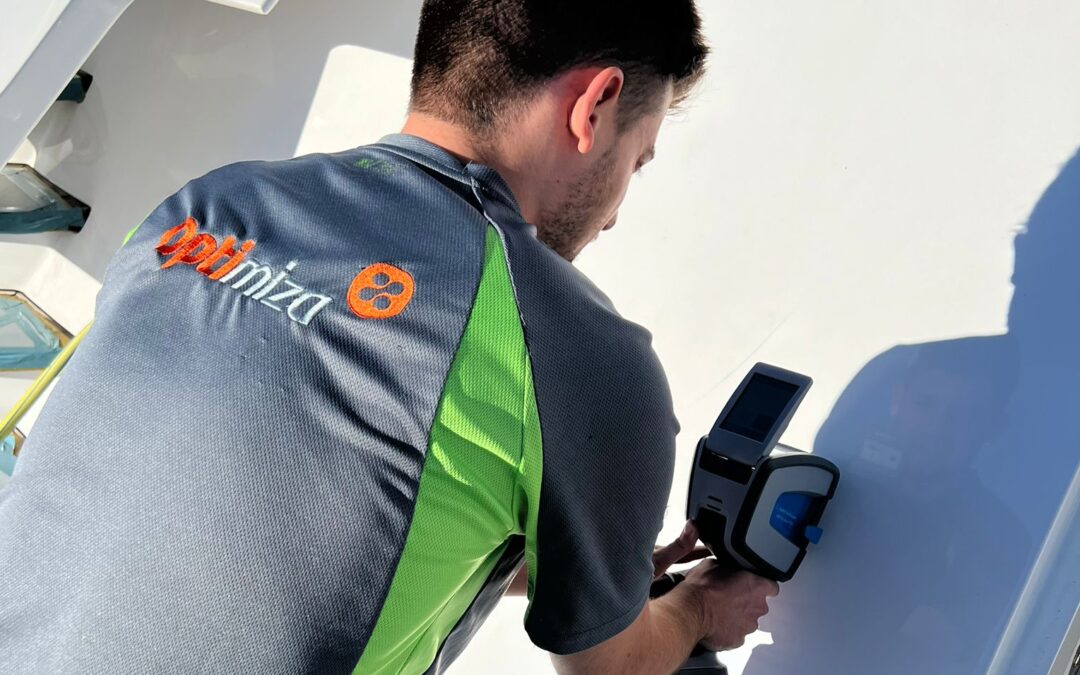In the field of luxury yacht asset management, proper protection and maintenance is fundamental to ensure the long-term efficiency, safety and sustainability of the yacht itself, its materials and components. A comprehensive strategy combining a detailed condition survey, risk assessment, accurate selection of maintenance processes and products, together with rigorous techno-economic analysis, can be key to optimising asset protection and effectively planning maintenance in the medium to long term.
Condition Inspection and Risk Assessment
The first step in protecting a yacht is to carry out a thorough condition survey, covering both visible and critical elements. This inspection should be supported by field tests and laboratory analysis to assess the level of wear, the criticality of the components and their current condition. With this assessment, each component can be classified according to its criticality level, which will allow prioritising maintenance actions and defining the frequency of future inspections. In addition, a proper risk assessment helps to identify vulnerable areas, such as marine corrosion, ageing of materials, and potential failures in critical systems.
Selection of Maintenance Processes and Products
Once the yacht’s assets have been classified, it is crucial to select the most appropriate maintenance processes and products for each case. This selection should be based on the risk assessment carried out previously, considering efficiency, safety and sustainability, as well as the ability to withstand the unique conditions of the marine environment. The choice of specialised products and treatments, such as anti-corrosion coatings or rust protection systems, should focus not only on ensuring short-term protection, but also on maximising resources and reducing long-term operating costs. This may include innovative solutions for the maintenance of hulls, decks, engines and propulsion systems, while ensuring compliance with international regulations.
Technical-Economic Analysis and Long-Term Planning
Effective asset management requires a techno-economic analysis that assesses the costs and benefits associated with preventive and corrective maintenance. This analysis should consider not only the protection of the yacht’s current assets, but also long-term maintenance planning, which may extend over 10 to 30 years. In addition, factors such as inflation, rising labour and spare parts costs, as well as technological improvements that may arise during the life of the vessel, must be considered. A detailed maintenance and repair schedule will help owners to organise their budget efficiently and ensure that the yacht maintains its value and functionality over time.
Implementing the Maintenance Strategy
The implementation of an asset protection strategy should include a detailed plan of critical inspection points, precise maintenance specifications, execution schedule and selection of high quality materials and processes specifically designed for the maritime environment. In addition, it is essential to have qualified personnel and companies with experience in luxury yacht maintenance, which will ensure that the highest quality standards are followed and the integrity and durability of the assets are maximised. The use of advanced materials and specialised techniques ensures a longer service life and reduces the need for costly repairs in the long term.
Conclusion
An integrated inspection and maintenance strategy, based on accurate risk assessment, the right selection of processes and products, thorough techno-economic analysis and long-term planning, is key to optimising asset protection, ensuring efficient operation and prolonging the life of the yacht. Investing in proactive asset management can bring great long-term benefits and ensure that the yacht remains in optimal condition, providing safety and satisfaction to its owners.

